CULTURE OF RELIGIONS – A NEW COURSE IN THE BiH EDUCATION SYSTEM
The beginning of activities of the Sarajevo Open Centre was marked by an interesting initiative, a bit unusual at first sight, seeking the introduction of interdisciplinary non-confessional religious course “Culture of Religions” in the BIH’s education system. From today’s perspective, religion seems distant and incompatible with the organisation’s profile nowadays, but in the beginning, there was a Culture of Religions…
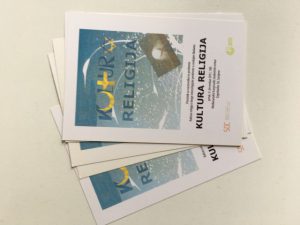
Culture of religions was one of the reasons behind the establishment of the Sarajevo Open Centre, based on the belief that the promotion of interreligious dialogue through the education system in a state with complex ethnic-religious relations is a precondition for tolerance and co-existence. Studying of BiH religious traditions in a new way represented a challenge which turned into tilting at windmills, and Sarajevo Open Centre left it to new generations, turning to some other battles itself.
This activity of the Sarajevo Open Centre aimed at improving the teaching methods and practices throughout BiH through trainings, in order to contribute to the gradual development of a substantive reform of the school system, which would contribute, through non-confessional religious education, to the creation of a society open for dialogue and willing to learn about others.
Activities relating to the Culture of Religions course in schools were implemented under the joint project of Goethe Institute in Bosnia and Herzegovina, Sarajevo Open Centre and OSCE. Goethe Institute and Sarajevo Open Centre, in cooperation with the Pedagogical Institute Zenica and ministries of education, science, culture and sports of Zenica-Doboj Canton and Bosnia-Podrinje Canton and with the Ministry of Education and Culture of Republika Srpska organised seminars for teachers and professors who run the Culture of Religions courses. During 2007 and 2008, three cycles of seminars for teachers of humanistic courses such as sociology, philosophy and history were organised. As a part of the project, the book entitled Culture of Religions by Ranka Katalinski and Zuhra Kalauzović was published in 2009, and a teacher handbook was published in 2011 and promoted in December 2011, on the eve of the Human Rights Day.
The Culture of Religions book was written by a group of authors lead by Dr Dino Abazović and Dr Zilka Spahić-Šiljak, and associates Ivo Marković, Dr Zorica Kuburić and Alen Kristić. The original manuscript was modified and methodologically adapted to the Culture of Religions course, and it was prepared by Ranka Katalinski, Melisa Forić and Bojana Dujković-Blagojević. Structure of the textbook is based on the preliminary framework and guidelines of a group of local and international experts which developed the Curriculum for interreligious education in schools in Bosnia and Herzegovina at the initiative of Goethe Institute.
Improvement of education
Given the complicated education system in BiH, divided competences and sensitivity of the topic, and a different, more open i.e. interdisciplinary approach to religious education, the Culture of Religions course has never been systematically incorporated in the education system, but it was implemented sporadically, in accordance with the curricula of cantons in FBiH and in the RS. The textbook and handbook have been used as teaching materials depending on the needs of teachers running the courses that are entirely or partially dedicated to the culture of religions.
Thematically, the textbook was oriented towards the acquisition of basic knowledge about monotheistic religions, about activities through mutual dialogue, and about education and getting familiar with ethical values. The main objective was to meet and understand others and the different. Culture of Religions includes six chapters: Cultural contribution of religions to architecture, literature and music, Family and religion, Ethics and religion, Togetherness as the principle of religions, Peace – place for the other, Religion – state – society.
This activity of the Sarajevo Open Centre aimed at improving the teaching methods and practices throughout BiH through trainings, in order to contribute to the gradual development of a substantive reform of the school system, which would contribute, through non-confessional religious education, to the creation of a society open for dialogue and willing to learn about others.
During 2012, the Sarajevo Open Centre conducted the first strategic planning which resulted in a hard decision, made by consensus, that the religion would no longer be a part of the activities, and that the struggle for a more tolerant society would be conducted in other arenas.
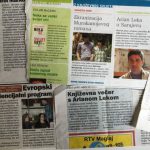 10 years of SOC: From Poetics to Payment Slips, From Culture to Bureaucracy
10 years of SOC: From Poetics to Payment Slips, From Culture to Bureaucracy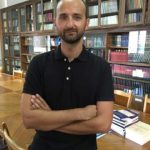 10 years of SOC: How LGBTI Rights and Freedoms were Ushered into Institutions
10 years of SOC: How LGBTI Rights and Freedoms were Ushered into Institutions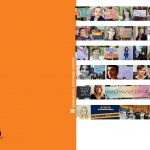 10 years of SOC: Battles Worth Waging are Best Waged Together
10 years of SOC: Battles Worth Waging are Best Waged Together 10 years of SOC: Change the World Around You
10 years of SOC: Change the World Around You 10 years of Sarajevo Open Centre: SOC Should Stick Around for at Least Another Ten Years
10 years of Sarajevo Open Centre: SOC Should Stick Around for at Least Another Ten Years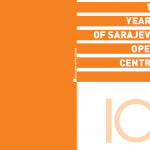 10 years of Sarajevo Open Centre
10 years of Sarajevo Open Centre